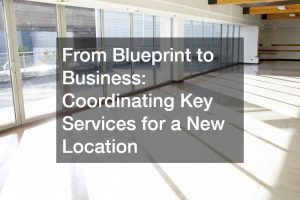We know that young children learn through play. We buy them educational toys and go out of our way to join them in playtime. That could mean physical activity like Frisbee or hide-and-seek, intellectual games like Scrabble, or simply indulging in the child’s made-up games.
Progressively, however, we expect children to take learning seriously. They enter school, which is a structured more learning environment. Each year, the subject matter becomes deeper and more complicated, requiring an equally rigorous study approach.
The learning process is continuous. We might eventually graduate from secondary school or college, but we will need to keep on learning and improving as adults in today’s constantly changing world. The problem is that by this point, most people can only approach learning seriously. Here’s why rediscovering the value of playful learning can give you an advantage.
Emphasis on humanity
When you try to contact a company through their website, you probably will talk to a chatbot. Products that you ordered online might have been manufactured, assembled, packed, or delivered through automated means. Sometimes, robots handle all of those aspects.
The displacement of humans from those jobs by various AI forms only underscores the importance of learning new skills. Change happens quickly. If you want to be competitive, be competent in skills that are in demand. To avoid losing your job to robots, get involved in their creation, operation, or maintenance.
Alternatively, you can focus on things that robots can never replace. Research by Deloitte and IFTF concludes that in the Fourth Industrial Revolution, the most vital skills will be human. Empathy, creativity, critical thinking, compassion, and effective communication are examples of those skills. They give us a contextualized intelligence that lets us understand society, business, culture, and the people we work with.
Playing for social skills
 There aren’t many empirical studies on the value of play for learning among adults. And we’re already dismissive of play to begin with. Most adults view it as a self-indulgent and ultimately frivolous waste of time. We’re only inclined to listen to ‘serious’ research because that’s how we’ve been conditioned to view learning after years of formal education.
There aren’t many empirical studies on the value of play for learning among adults. And we’re already dismissive of play to begin with. Most adults view it as a self-indulgent and ultimately frivolous waste of time. We’re only inclined to listen to ‘serious’ research because that’s how we’ve been conditioned to view learning after years of formal education.
It’s hard to make a connection between playing video games and learning how to code, for instance. They might go together often, but how do you establish causality? A programmer might be good at both simply because they grew up as a digital native, immersed in technology.
But you don’t need studies to tell you that playful activities of all sorts can help build social skills. Children form bonds all the time when playing games. They experiment with creative expression methods, such as art, music, or dance, without fear of failure or pressure to deliver a certain standard of results. Play gives kids a risk-free environment in which they can constantly discover and hone their human skills.
Accidental adult play
Thus, the same human qualities that are becoming more valuable in a world of AI can be enhanced through various play forms. And without realizing it, adults frequently attempt to harness that potential.
Through casual sports, we seek to strengthen our social interactions. Occasionally, adults can reap the same benefits through the communication and coordination required from playing multiplayer online games. And many grown-ups are rediscovering the power of creative skills, such as painting or playing a musical instrument, even if it has nothing to do with their profession.
However, if you’re not intentional about learning through play, any benefits you gain from such activities result from happy accidents. Playful learning, by definition, isn’t serious. But it can still be maximized by a deliberate effort to put yourself in the most conducive playful environment possible.
An intentional approach
For adult learners, that means maximizing certain elements of playful activity. You want play to engage the emotions. It has to be something you can simulate or repeat. And it has to detach you from the normal.
Engaging emotions is most effective through storytelling. When we play sports or video games with others, we can create shared moments that inspire retellings. We have been through them together, in the same way soldiers might go through a battle, only much safer. You don’t get the same benefits by playing solo.
That experience must have the potential to be recreated. A team activity that only happens once a year is less powerful than something you and your colleagues might be able to do every weekend. And it needs to shake up the established norms. Your supervisor at work must be just another player in the game, someone who can be tackled or given instruction without invoking the workplace relationships.
Play doesn’t replace serious learning. It supplements it. Allow yourself to have fun alongside structured learning as an adult, and you’ll master the skills that truly matter.







